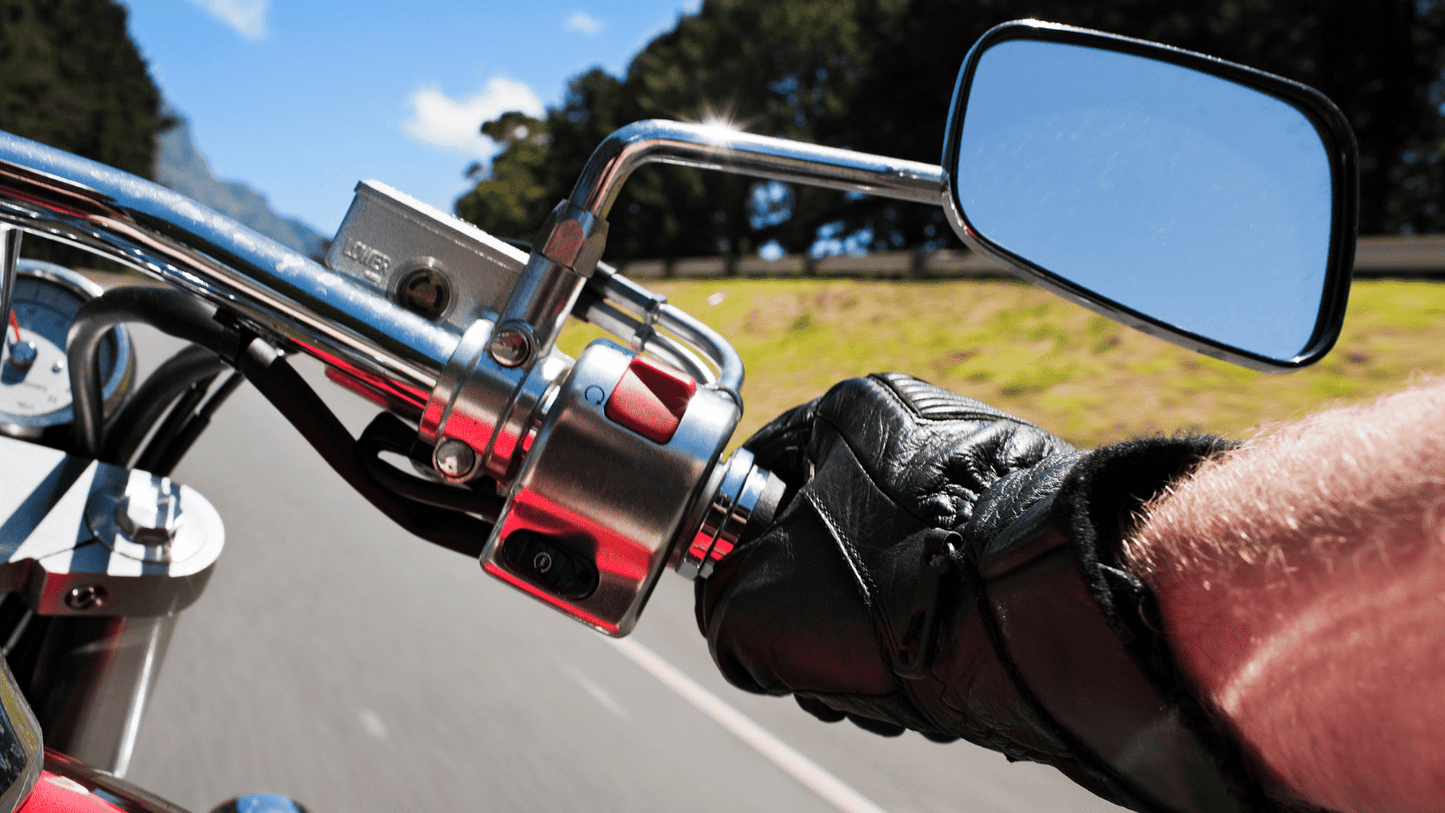
May was Motorcycle Safety Awareness Month. And we get it- motorcycles are dangerous, be safe out there, blah, blah blah.
You've hear it a million times (and if you're an experienced rider, you've heard it a bajillion times). But maybe you've never had a chance to do a deep dive into the details of why motorcycles are dangerous.
For starters, motorcyclists were about 29 times more likely than passenger vehicle occupants to die in a motor vehicle crash and 4 times more likely to be injured in 2019, according to the National Highway Traffic Safety Administration.
Even if you flunked college statistics twice (like some of us) that number should be stunning. So yeah, motorcycle safety is important because motorcycles are dangerous. Really, really dangerous.
But turn that frown upside down!
Here are five unbelievably simple ways to reduce your crash and injury risk by a massive amount. Check them out below.
1. Wear a (Full-Face) Helmet, Dummy!
The fact that we need helmet laws is baffling.
If there is just one thing you do to reduce your chances of serious injury or worse, it's wearing a DOT-standard helmet. We're not going to explain how helmets work or why you should wear one (we've covered this in other posts), just wear a helmet!
And if you're going to wear a helmet, make it a full-facer. Why? Half or “shortie” helmets are pretty much useless, as they can move around or come off in a crash. Three-quarter helmets are better, but still leave your tender, beautiful face open to easily-avoided trauma. A modular or “flip-up” helmet is better still, especially if you buy a quality item with steel locking hardware, but nothing beats the protection of a modern Snell, DOT or ECE-approved full-face helmet.
A helmet is the only item of safety gear scientifically clearly proven to reduce motorcycle fatalities, so it's definitely a good place to stat.
2. Don't Drink and Ride
Duh, right? It's so obvious...and yet somehow, after decades of PSAs and MADD commercials and constant reminders everywhere you look, 29% of the motorcyclists killed in 2019 were drunk.
Alcohol can negatively impact your judgment, coordination and balance, making it more difficult to shift gears and stay alert. And it doesn't take long. Impairment can begin with just one drink.
Don't risk it.
3. Hearing Protection Made for the Road
Our hearing can take a serious beating when we're on the road. One OSHA study found that riding a motorcycle at least 40mph with an open helmet could produce steady noise levels up to 90dB, the same as a leaf blower. At 65mph, sound can surpass 100dB, making it safe to ride without protection for a matter of minutes.
Hearing protection helps you ride safer because it reduces distractions while keeping you alert and tuned into what you need to hear, like traffic or in-helmet radio communications.
Even if we didn't sell the leading high fidelity ear plugs for motorcyclists, we'd still tell you to wear them while riding. Hearing protection not only protects against noise-induced hearing loss, the right plugs will actually enhance your riding experience.
You might just need your helmet and gloves when you ride but you always need to protect your hearing. Use hearing protection when you ride.
4. Solo? No Go!
Sure, the perception of a motorcycle rider is that badass, leather-clad lone wolf, but any wolf will tell you it's safer to hunt with the pack.
Motorcycles are not two-wheeled cars, which means even minor problems can turn serious in a second. A flat tire on a car? You just pop on your spare, or even drive slowly on the flat a little ways to a tire shop. On a motorcycle? Well, if you didn't crash (as often happens, especially with front-wheel flats), you're still not going anywhere. What if you're out of cell range?
Having a riding buddy (with a passenger seat) can mean the difference between life and death.
5. Dude—Your 'Tude
Not everyone can – or should – ride a motorcycle, either because they lack the ability to learn the skills to ride safely, have a physical condition that keeps them from riding safely, or can’t exercise proper judgment. Riding safely requires self awareness and preparation, something squids just don’t do.
The right rider attitude means you considers the risks, knows when to push and their limits on the street (and when not to), and acknowledges their responsbility to their friends, families and communities.
Become a lifelong-learner, a student of motorcycles.
--
So there you go: five ways to be safer this spring. Let us know if you have any simple safety tips—we love to hear from our customers and readers!
